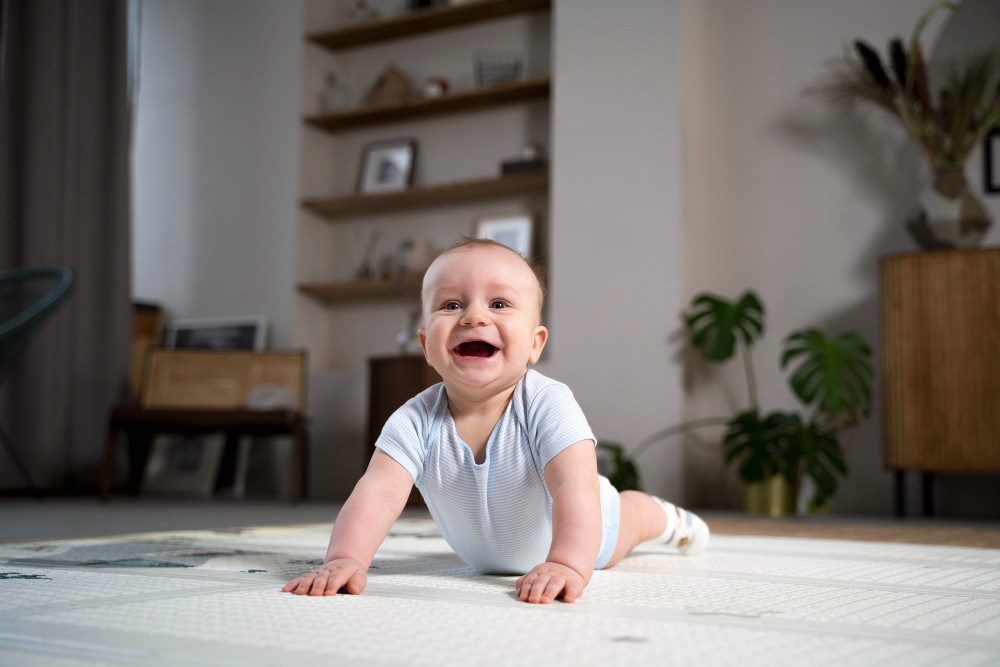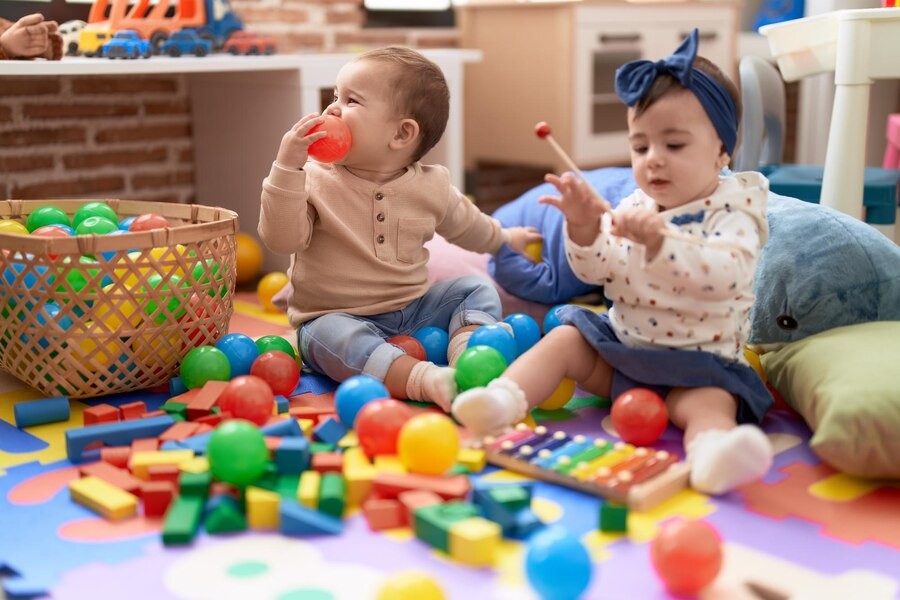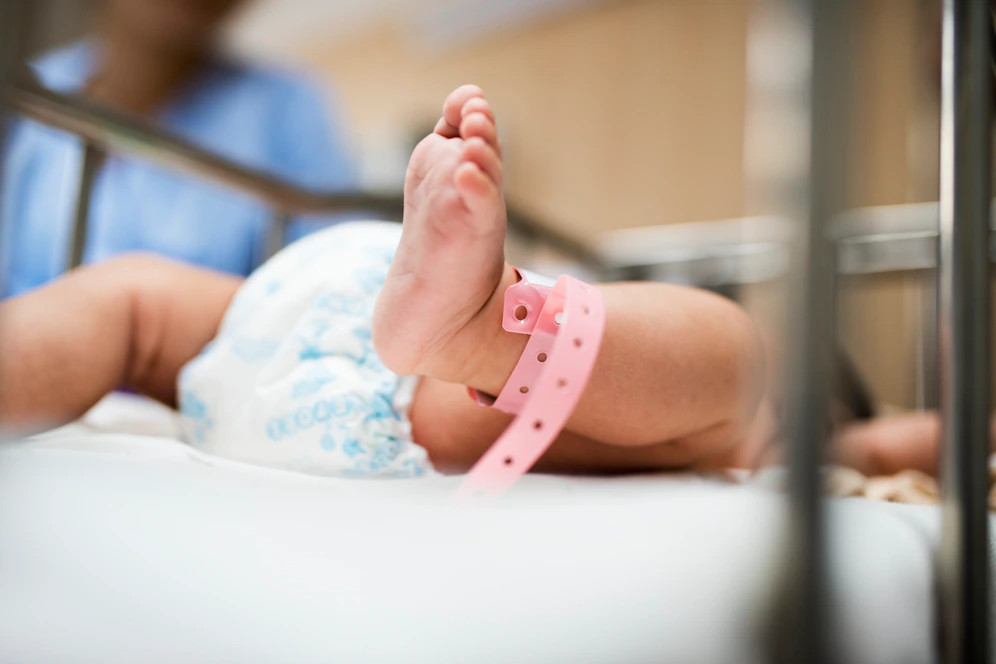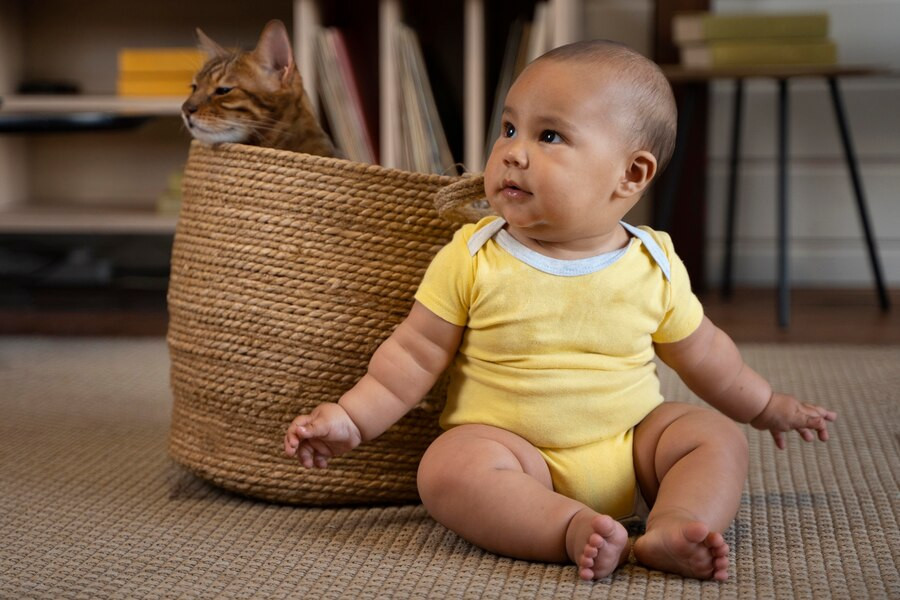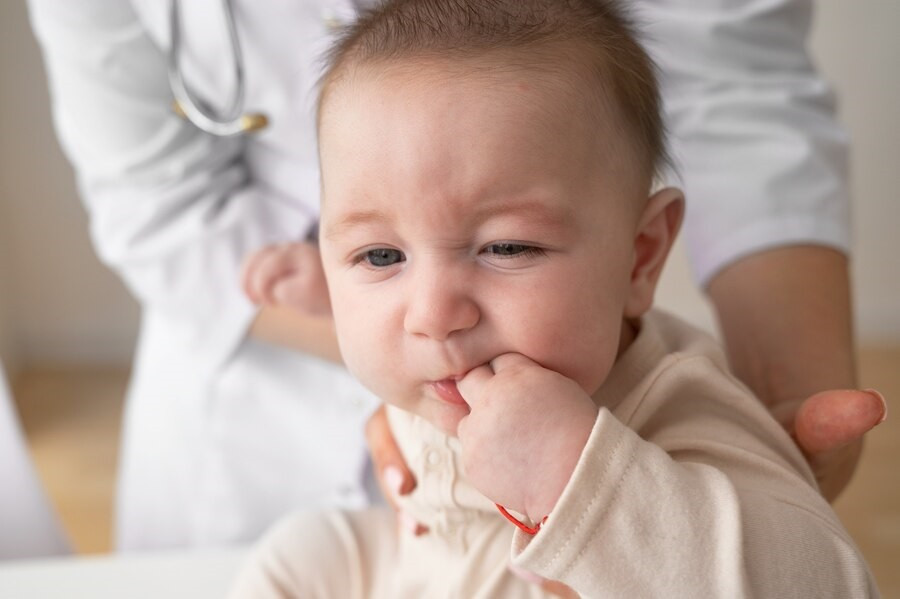Babies' behavior is undeniably adorable, especially when they laugh. Babies' laughter is actually an important part of their development. When do babies start laughing, and how do you get them to laugh? Learn more in the following article.
When do babies start laughing?
Babies begin to experiment with sounds as early as birth. They make a variety of sounds, including cooing, whispering, and grunting. These adorable sounds are their way of investigating mouth and throat movements.
Typically, babies begin laughing around the age of four months. In addition to crying, babies communicate through laughter. Babies laugh in response to funny faces or sounds, as well as physical touches such as tickling and kissing. This interaction is crucial to their social development.
Babies' laughter develops over time. By nine months, you may notice your baby laughing in their sleep. By 12 months, as their understanding of their surroundings grows, they will begin to react to their surroundings with laughter.
How to make your baby laugh
Not only does your baby enjoy laughing, but those around them do too. Making your baby laugh promotes their psychological and social development. Before trying to make your baby laugh, ensure their basic needs are met, such as feeding and changing their diaper if needed. A well-fed and clean baby is more likely to be in a good mood and have a sense of humor.
Here are some ways to make your baby laugh:
- Physical play: Engage in physical games such as tickling their tummy or feet, kissing them, gently swinging them up and down, or clapping hands with them
- Funny sounds and faces: Babies respond to amusing things around them. By making funny sounds and expressions, you can elicit laughter. Try making silly facial expressions or unique sounds to entertain them. The more vocal and visual interactions you provide, the better the stimulation for your baby
What if your baby doesn't laugh?
Every baby achieves developmental milestones at their own pace. Babies usually start laughing around 3 months or older. However, if your baby has not laughed by 6 months, you should consult a pediatrician. While this is usually not a serious problem, doctors and parents should be aware and intervene early if necessary.
According to The Bump, this condition is usually harmless as long as the baby coos, smiles, and interacts with those around them. Nonetheless, if you're concerned that your baby won't laugh by 6 months or later, you should see a doctor.
If you have questions about your baby's development, consult a pediatrician. You can also make use of the consultation features that are available in the Ai Care application by downloading the Ai Care application from the App Store or Play Store.
Looking for more information about pregnancy, breastfeeding, and the health of women and children? Click here!
- Sean Edbert Lim, MBBS
Weeiss, K. (2021). When Do Babies Start Laughing?. Available from: https://www.whattoexpect.com/first-year/first-laugh/
Mattia, N. When Do Babies Laugh?. (2023). Available from: https://www.thebump.com/a/when-do-babies-laugh
Sauer, M. (2022). When do Babies Laugh. Available from: https://www.babycenter.com/baby/baby-development/when-do-babies-laugh_40009316
Porreto, D. (2023). When Do Babies Start Laughing?. Available from: https://www.parents.com/baby/development/laughing/babys-early-laughs/

